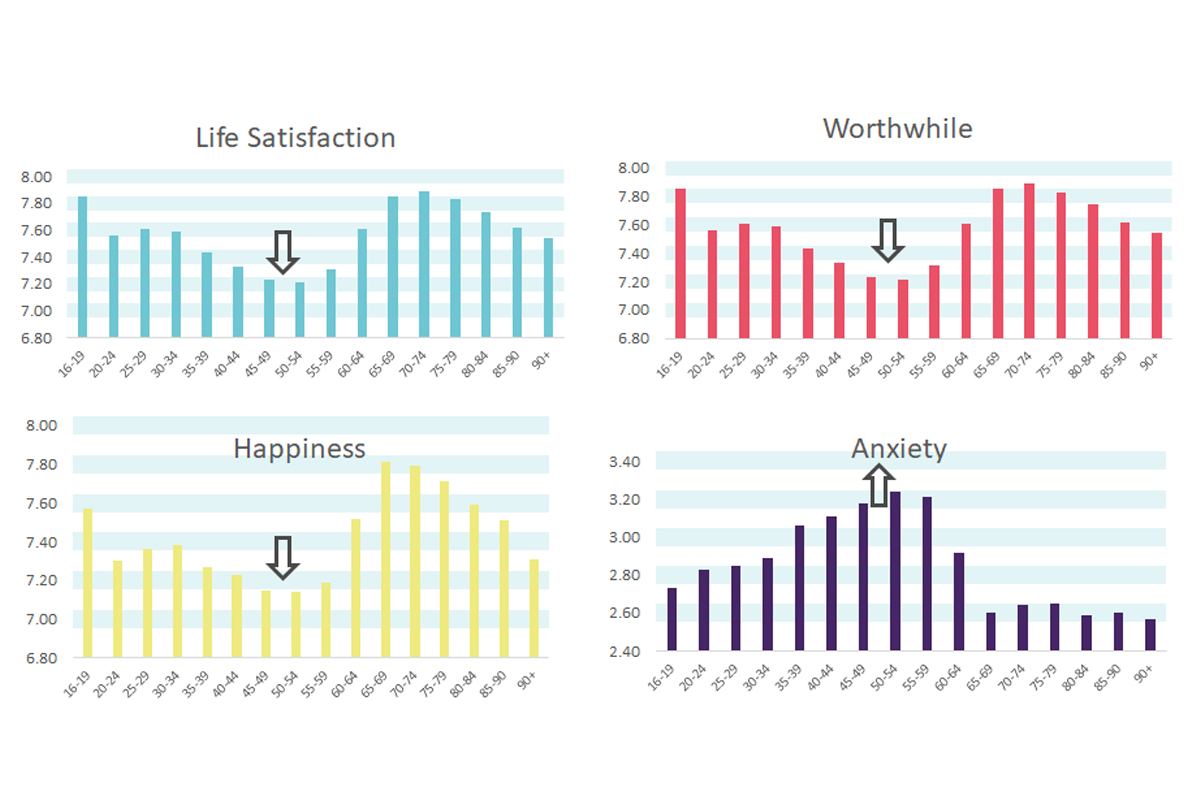A ‘crisis’ might not be a bad analogy. The origins of the word also mean ‘a time when a difficult or important decision must be made’, which is perhaps a fitting and useful way of thinking about how we take stock and think positively about the rest of our longer lives.
With many more of us living until 100, 50 will increasingly become the halfway point: an important time to take stock, reflect and plan for the decades ahead. As a society, it’s important to think about how we will fund our future years, when and how we will work and retire, how we will spend our time, how will we maintain our health and social relationships and how we will care for those around us.
Unfortunately, the evidence also shows that, generally speaking, people aren’t particularly planning at this stage in their life. In fact most people haven’t even thought about thinking about it. As much as 57% of people haven’t thought about their hopes or ambitions for life after 60 much or at all. Most usually say it’s because they don’t tend to plan their life out in advance or that it seems too far off. It’s not for a lack of information. Perhaps this is of little wonder when current pressures in the here and now trump thinking about the uncertainty the future might bring.
People are uncertain about their future retirement income from the state and there isn’t always great trust in private pension providers. Four out of ten people who aren’t retired think that there won’t be a state pension by the time they do retire. Of 22 financial products reviewed by the FCA, pet insurance ranked among the highest in terms of satisfaction and trust. In comparison, private workplace pension products ranked 21st in terms of satisfaction and 22nd in terms of trust. People need better access to information and guidance for the most important products to their future financial wellbeing. Why plan for a future if you suspect the rules are going to change and you don’t trust the providers of your most important financial products?
These are different times, with new challenges. One thing for certain is that whoever you are, your later life will be very different from those of your parents and grandparents.
John Cridland’s independent review of the state pension age published last year was called ‘Smoothing the Transition’. Transition, because he recommended an increase to state pension age of 68 starting in 2037, but that it would be in need of smoothing for many people to mitigate the social, economic and health inequalities that could result. One of those mitigations was to introduce a ‘Mid-life MOT’ as a trigger point to encourage people to take stock and make realistic choices about work, health and retirement.
The Centre for Ageing Better has been exploring options and models with government, employers and service providers and we will reflect later on what the evidence shows us about the viability of this concept. In the meantime, it’s important that as a society we begin to plan ahead in our middle years as much as our early years. With big decisions to make in the middle of our lives, we shouldn’t let a good crisis go to waste.



